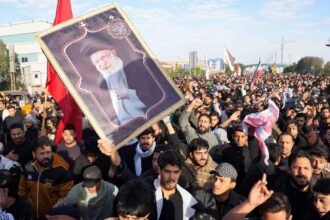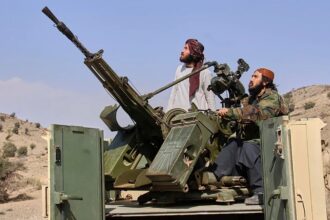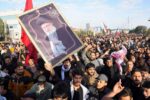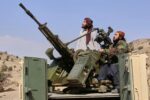In the heart of Sudan’s Darfur region, the city of El-Fasher has become the site of one of the bloodiest massacres of the year. Over 2,000 civilians have been slaughtered since October 26, 2025, in what observers describe as a campaign of ethnic cleansing and religious persecution carried out by the Rapid Support Forces (RSF) — a brutal paramilitary organization with deep Islamist roots.
Witnesses and aid agencies report that RSF fighters stormed Christian-majority neighborhoods and villages populated by Fur, Zaghawa, and Berti ethnic groups. Men were executed in front of their families, women were raped, and entire villages were torched to the ground.
Survivors recount that Christian families were singled out, forced to renounce their faith, or executed on the spot. Churches were desecrated and razed, adding to fears that this massacre represents not just an ethnic purge but an explicitly Islamist campaign against non-Muslims and African ethnic minorities.
Human rights observers and the U.N. have warned that the RSF’s actions “bear the hallmarks of genocide.” Yet as satellite images show the smoking remains of El-Fasher, international outrage has been met with deafening silence from Washington.
Who are the RSF? The Janjaweed rebranded
The Rapid Support Forces are not a new entity — they are the modern incarnation of the Janjaweed, the notorious Arab militias that orchestrated the Darfur genocide in the early 2000s, killing hundreds of thousands. Officially integrated into Sudan’s security forces in the last decade, the RSF maintained independent command, Islamist ideology, and tribal loyalties.
Under Mohamed Hamdan Dagalo, known as Hemedti, the RSF evolved into a state within a state — controlling gold mines, trade routes, and a vast network of foreign mercenary operations across Africa and the Middle East. The group has received training and arms from Islamist networks, and several of its leaders have past links to extremist outfits operating in Libya and the Sahel.
The massacre in El-Fasher thus represents not just a civil war crime — but a continuation of Sudan’s long Islamist project of racial and religious domination.
Is Trump’s silence complicit
As horrifying images from El-Fasher emerged, bipartisan voices in the U.S. Senate — including Republican Jim Risch and Democrat Jeanne Shaheen — demanded that the RSF be designated a Foreign Terrorist Organization (FTO). They urged President Donald Trump to impose sanctions, diplomatic isolation, and direct humanitarian intervention.
Yet, the Trump administration’s response has been muted and cautious. Officials issued general condemnations but avoided any concrete measures — no sanctions, no envoy, no mobilization at the U.N. Security Council.
Analysts argue that Trump’s foreign policy priorities — focused on energy deals, anti-China strategy, and Middle East normalization — left little bandwidth or political will for an African crisis without immediate strategic value.
This policy of neglect has drawn sharp criticism. Human rights organizations accuse Washington of moral abdication, warning that America’s inaction has “emboldened Islamist militias to act with impunity.” By choosing caution over confrontation, Trump’s administration is seen as complicit in silence while entire communities are exterminated.
The human cost of this silence
By late October, humanitarian organizations estimate that over 100,000 people have fled El-Fasher and nearby towns. Makeshift camps are overcrowded, food supplies are collapsing, and reports of mass graves continue to surface.
Satellite evidence shared by Amnesty International reveals at least a dozen villages erased from the map, consistent with scorched-earth tactics the RSF used in Darfur two decades ago.
If the international community fails again, analysts warn, Sudan situation could descend into a full-blown genocide under Islamist command, with ripple effects across the Horn of Africa.
The El-Fasher massacre is not just another conflict story. It is a moral test — for Sudan, for Africa, and for the world’s democracies. When Islamist-linked militias massacre Christians and ethnic minorities, when civilians are executed for their faith and race, and when the world’s most powerful democracy looks away — the silence itself becomes an act of betrayal.
As bodies continue to pile in El-Fasher, the question lingers: How many more will die before the world decides to care?








